Participatory public policies that empower farmers, build resilience in rural areas through access to credit, innovation, science and technology, and strengthen food security, are the best way to preserve the legacy of Norman Borlaug, the American agronomist who laid the foundations of modern agriculture, saved millions of people from hunger, and won the Nobel Peace Prize in 1970.
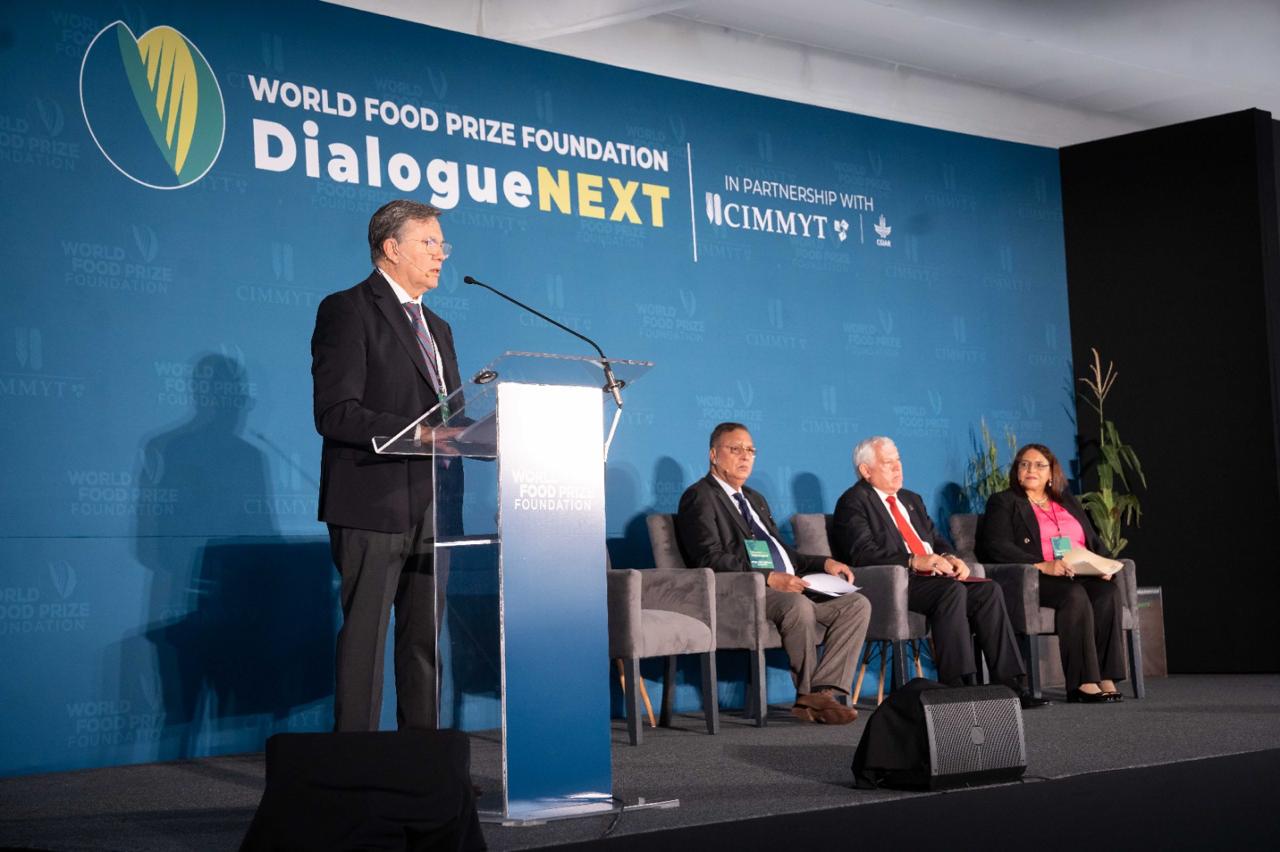
Texcoco, Mexico, 11 July 2024 (IICA). Participatory public policies that empower farmers, build resilience in rural areas through access to credit, innovation, science and technology, and strengthen food security, are the best way to preserve the legacy of Norman Borlaug, the American agronomist who laid the foundations of modern agriculture, saved millions of people from hunger, and won the Nobel Peace Prize in 1970.
This was the sentiment expressed by senior officials from the World Food Prize (WFP) Foundation and the International Maize and Wheat Improvement Center (CIMMYT), ministers of agriculture from the Americas, Africa and Asia, Mexico’s Foreign Secretary, the Director General of the Inter-American Institute for Cooperation on Agriculture (IICA), and the Special US Envoy for Global Food Security, at a meeting in the Mexican municipality of Texcoco.
The first in the DialogueNEXT series organized by the WFP outside the US, the event was entitled “Nurturing Farmer Resilience.” It brought together public managers and researchers from around the world and took place some 30 kilometers from Mexico City, at the Headquarters of CIMMYT, part of the CGIAR global agricultural research network (formerly the Consultative Group for International Agricultural Research).
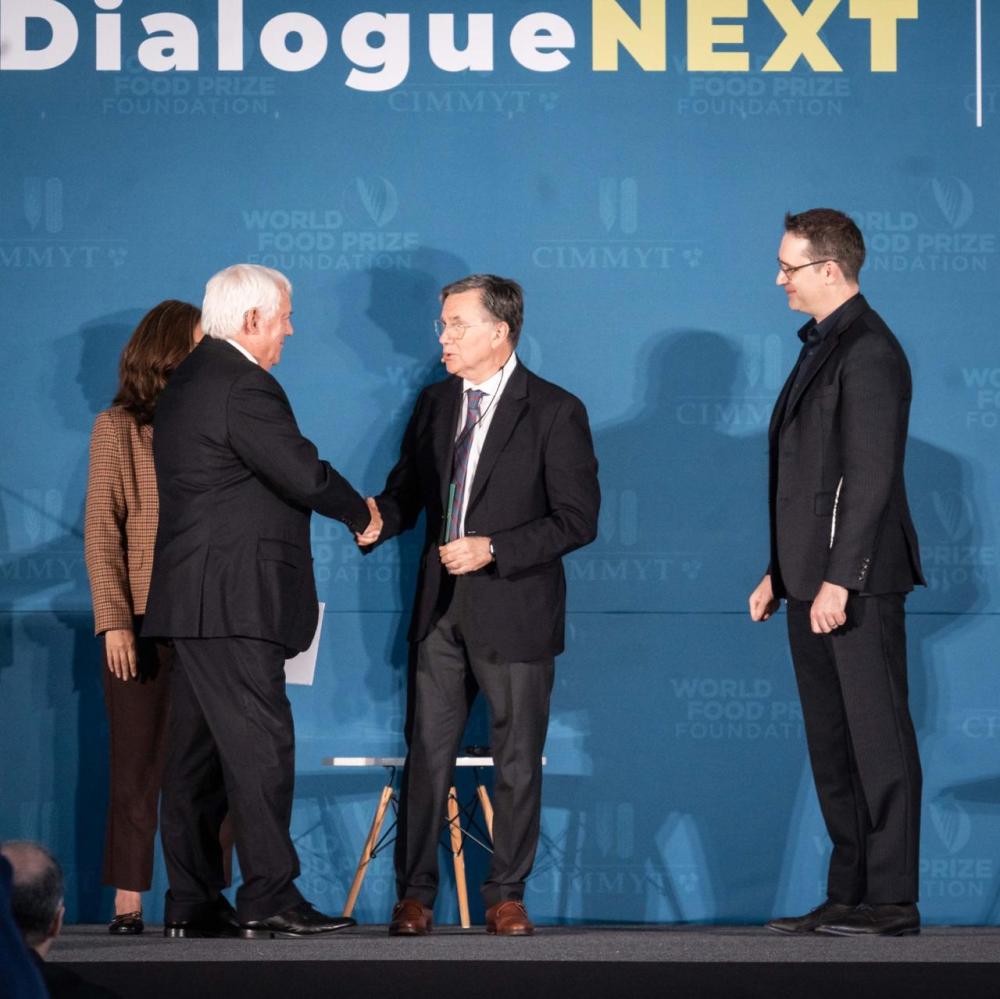
The WFP series of meetings is part of an institutional effort to take the discussion on the strengthening of agriculture and its key players to various parts of the world, following in Borlaug’s footsteps and in a desire to preserve his legacy.
The event was opened by WFP Chief Operating Officer, Mashal Husain, the Director General of CIMMYT, Bram Govaerts, and the Secretary of Foreign Affairs of Mexico, Alicia Bárcena, who highlighted Borlaug’s ongoing legacy and the importance of reinforcing the shared work of academic centers, governments, international agencies, financing entities, and organized civil society aimed at strengthening global food security and doing so in an increasingly sustainable way.
Husain referred to the need to ensure that farmers were placed center stage, while Govaerts drew attention to the fact that the participants in the event at CIMMYT Headquarters were drawn from the five continents, and all were linked to agricultural research, public policies, or financing.
Foreign Secretary Bárcena, who emphasized the major contribution of international organizations like IICA to the fight to achieve food security, also underlined the importance and relevance of the so-called “Global South” in its role as a key supplier of food for the world.
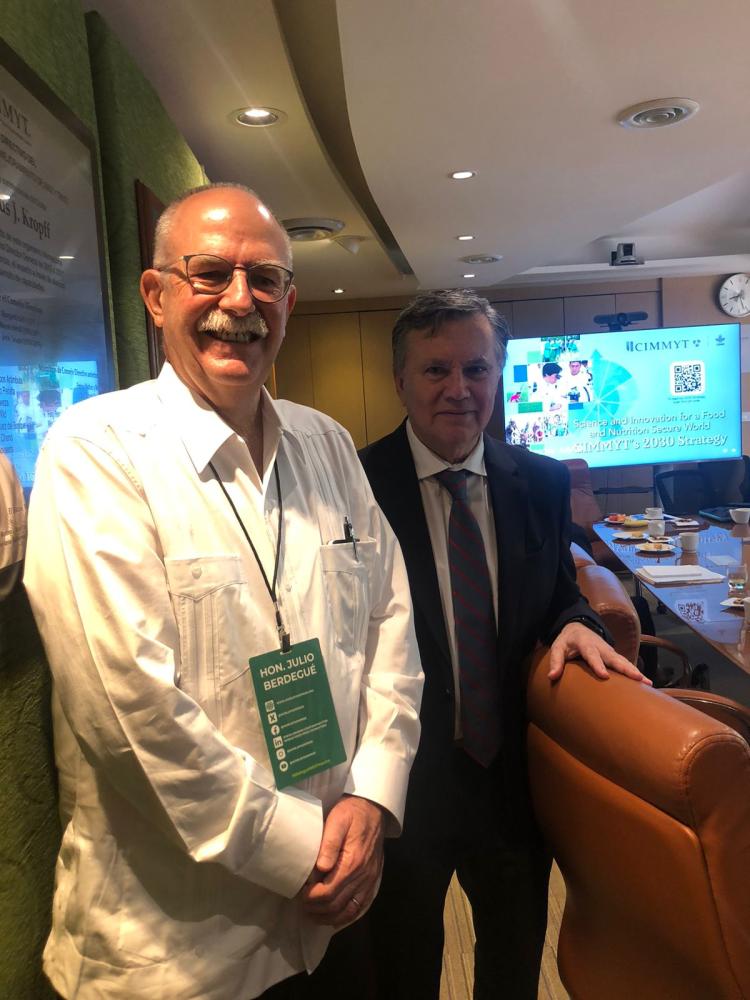
Cary Fowler, the US State Department’s Special Envoy for Global Food Security and the recipient of this year’s World Food Prize, regarded as the Nobel Prize for issues related to agriculture and food production, then highlighted the importance of long-term public policies and solid partnerships to address food insecurity, by means of strategies designed to build resilient food systems, which he suggested should focus on access to different varieties of climate-resilient crops and the development of fertile, healthy soils.
Fowler cited as an example Africa’s Vision for Adapted Crops and Soils (VACS) program, recently extended to Guatemala, which is receiving support from IICA.
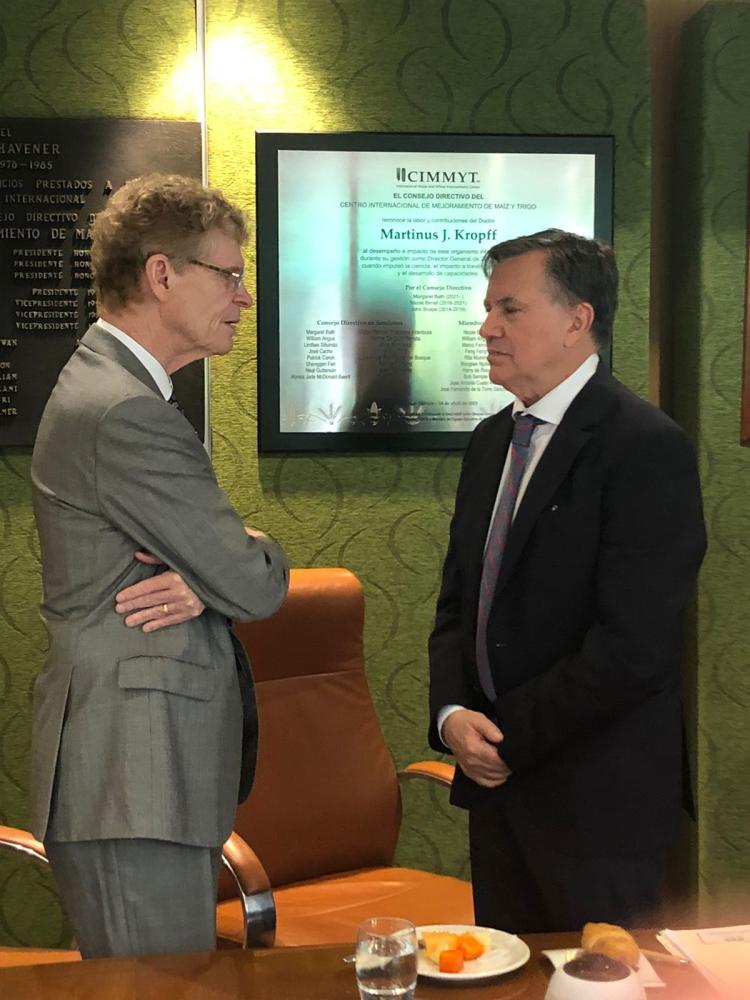
The Director General of IICA, Manuel Otero, moderated the panel discussion “Exploring Policies and Practices for Rural Resilience.” The participants were the Secretary of Agriculture and Rural Development of Mexico, Víctor Villalobos; the Secretary of Agriculture and Livestock of Honduras, Laura Suazo; and the Minister of Agriculture of Bangladesh, Mohammed Abdus Shahid.
Suazo referred to Honduras’ State Policy for agriculture, her country’s efforts to reduce the gaps in access to information and technologies for small farmers, and the increase in inclusive financing.
Villalobos then gave an overview of Mexico’s progress in the areas of rural development and inclusion, the challenges that climate change poses for agriculture, and the growth in his country’s agricultural exports.
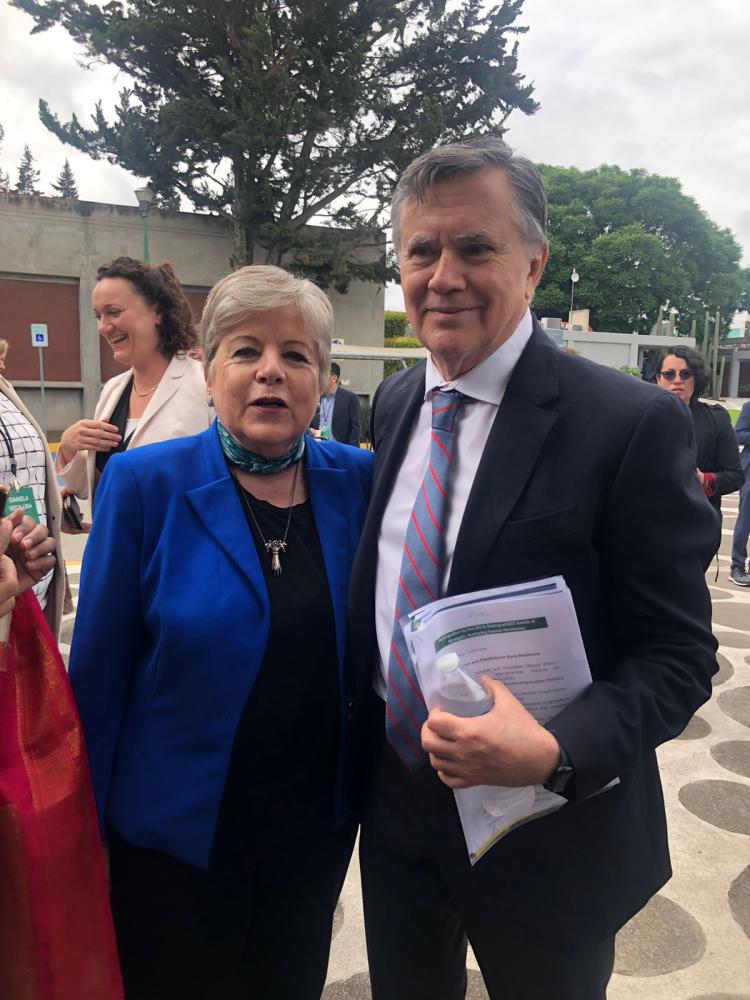
Otero drew attention to Borlaug’s work, citing the American agronomist’s cooperation efforts with the governments of Otero’s own country (Argentina) and Mexico, and entities such as the Rockefeller Foundation, as examples of “science in action” and “innovation for people.” He then held meetings with Secretary Villalobos and the person who will succeed him in his post on October 1, Julio Berdegué, when the government of President-elect Claudia Sheinbaum takes office.
Otero and Berdegué agreed to step up the support that IICA provides to the Mexican government in the areas of agricultural and rural development and animal and plant health surveillance.
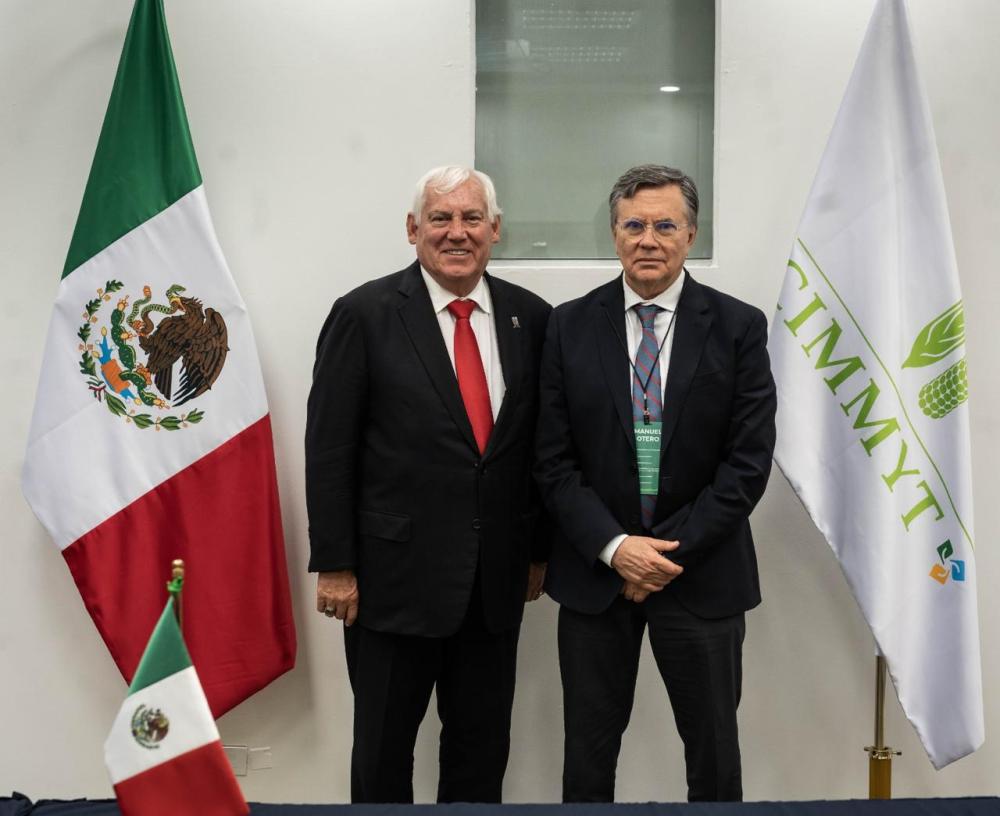
The Director General of IICA was accompanied in Mexico by the Deputy Director General, Lloyd Day, IICA’s Representatives in Mexico, Diego Montenegro, and IICA’s Representatives in the United States of America, Margaret Ziegler.
More information:
Institutional Communication Division.
comunicacion.institucional@iica.int











